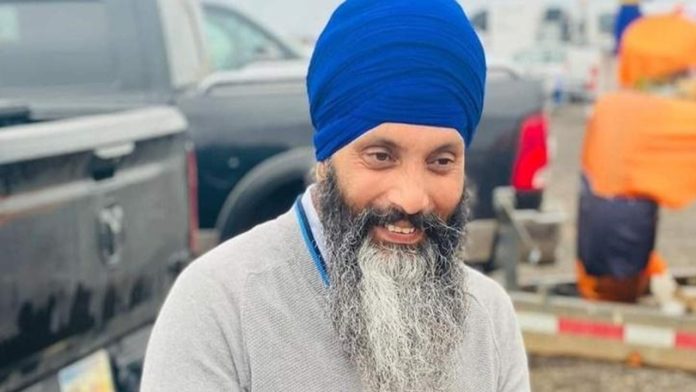Hardeep Singh Nijjar, a designated terrorist and Khalistan supporter, was killed in a pre-meditated attack on the Guru Nanak Sikh Gurdwara in Surrey, British Columbia, on 18 June. The attack was carried out by two unidentified assailants on motorcycles approximately at 8:27 p.m. The Surrey Royal Canadian Mounted Police (RCMP) discovered an adult male with gunshot wounds inside a vehicle, who later died from his injuries. At this early stage, the victim’s identification has not been formally established, and the Integrated Homicide Investigation Team (IHIT) has been called in to undertake a thorough investigation.
Association with Khalistan Movement
Originally from Jalandhar area in Punjab, Nijjar worked as a plumber in Surrey. He took over the Guru Nanak Sikh temple in Surrey appointing himself president. The Indian government labelled Nijjar as a terrorist and recognised him as the Chief of the Khalistan Tiger Force (KTF). He was also involved in pushing Sikhs for Justice’s (SFJ) separatist and militant agenda in India. Nijjar was an important member of the Gurpatwant Singh Pannun-led SFJ and was designated as its representative in Canada, where he led the “Referendum-2020 campaign” in the Metro Vancouver region, when anti-India slogans were raised.
The National Investigation Agency (NIA) in India had contacted Canadian law enforcement officials about Nijjar’s role in the Khalistan movement. Although he was temporarily detained by Canadian authorities in April 2018, no charges were filed, resulting in his release. The NIA had wanted him in connection with four cases involving the Khalistan extremist movement.
The NIA charged Nijjar in July of last year for his suspected participation in the murder of priest Kamaldeep Sharma in Jalandhar, Punjab. The NIA had declared a Rs 10 lakh reward for his capture. In addition, Nijjar was charged with the murder of Ripudaman Singh Malik, who was acquitted in the 1985 Air India terrorist bombing case. Nijjar and another Khalistani rebel from Canada, Moninder Boyle, were both involved in a plot to assassinate Malik. They disseminated rumours about errors in Malik’s printing of the Sri Guru Granth Sahib (SGGS), causing animosity between the extremists and Malik.
Avtar Singh Khanda
On a separate note, Avtar Singh Khanda, the Khalistan Liberation Force (KLF)’s UK-based head, died on June 15 in a UK hospital. Khanda, the son of KLF terrorist Kulwant Singh, has been in the UK since 2007 and applied for asylum in 2012. He was suspected of being poisoned, although medical reports suggest that he was suffering from blood cancer. Khanda was well-known for his role in removing the Indian flag from outside the UK High Commission in London in March.
These recent events show continuing concerns about the Khalistan movement and its followers in Canada and around the world. The investigation into the death of Hardeep Singh Nijjar will provide more light on the circumstances surrounding his death and the potential effects on the movement.

